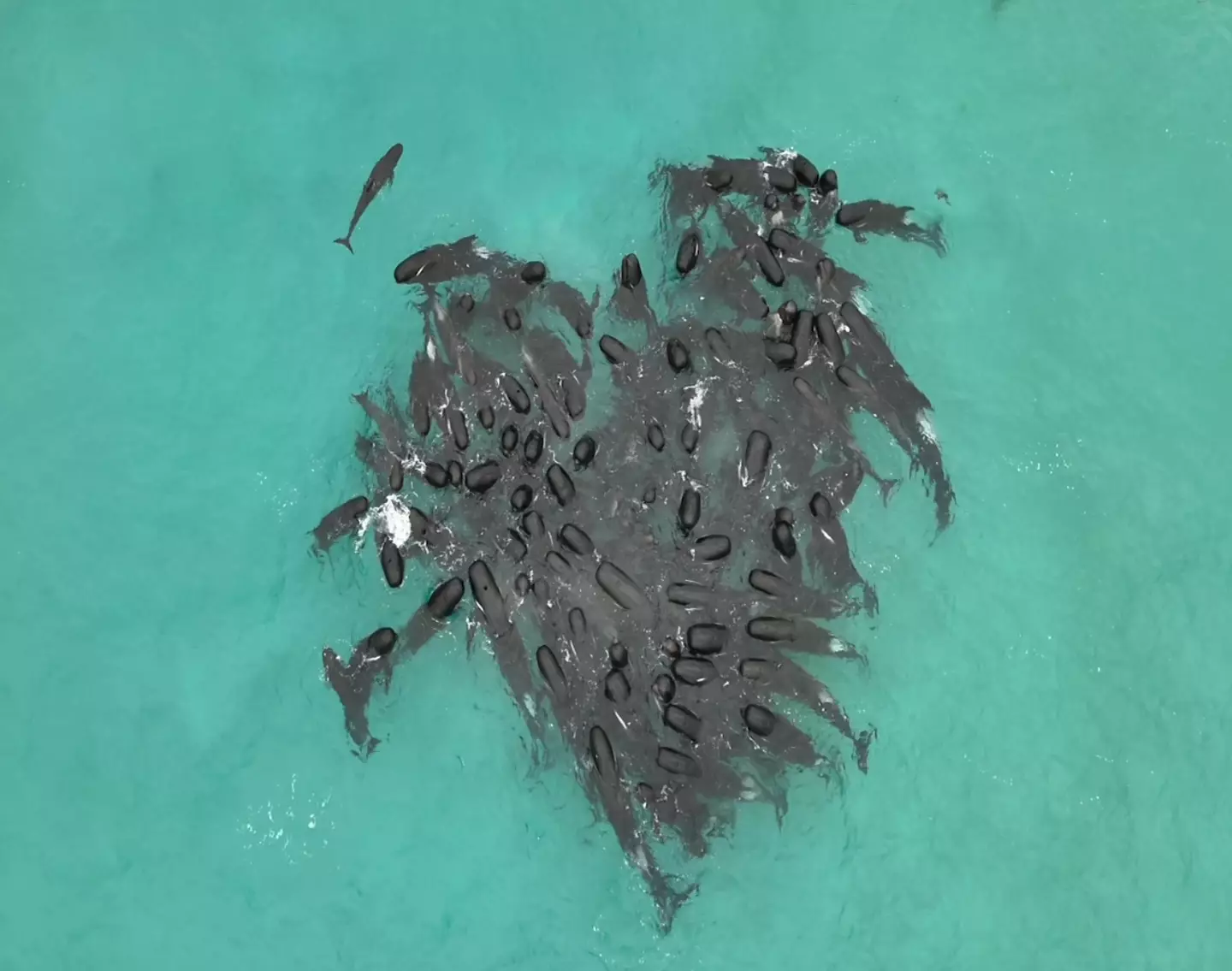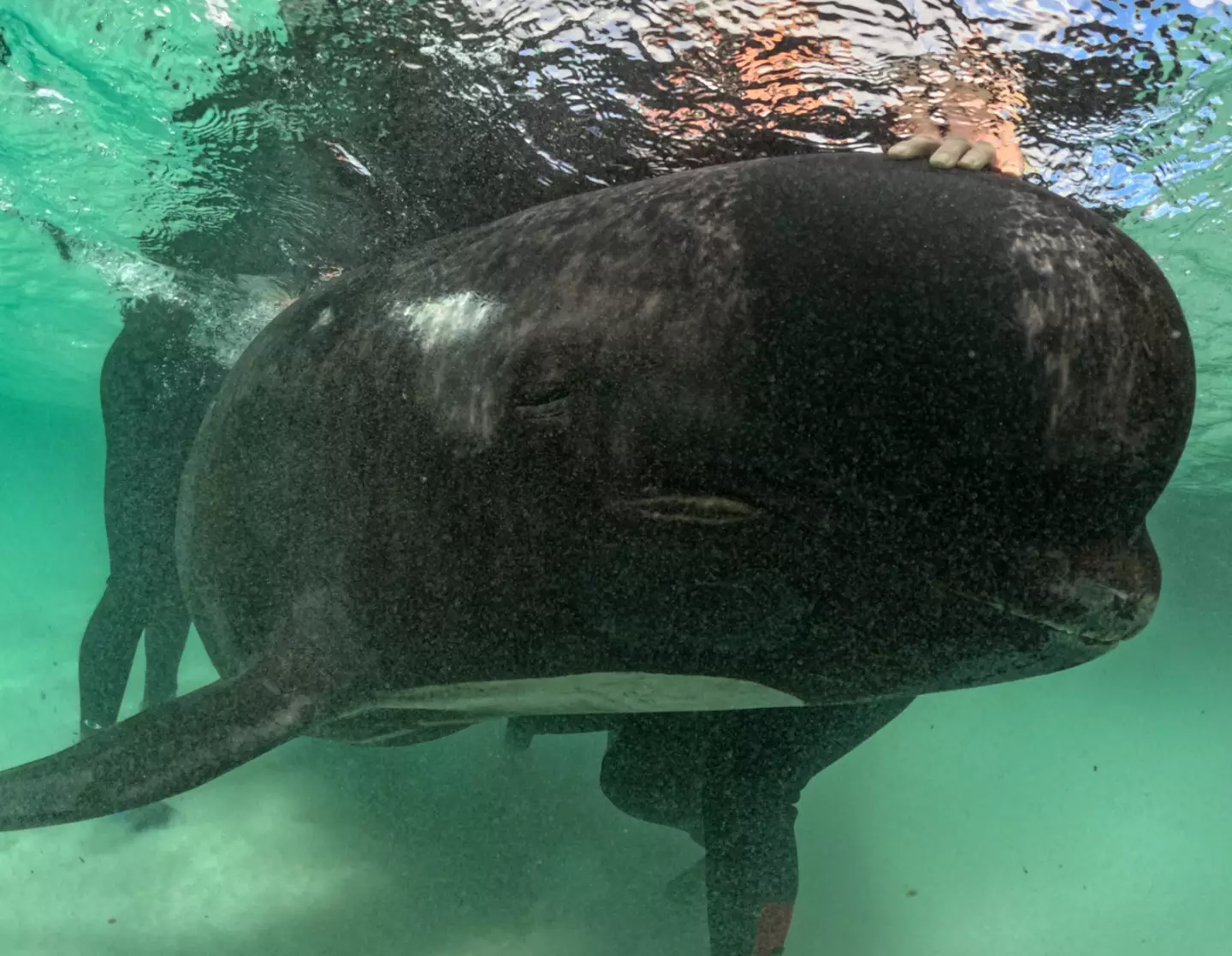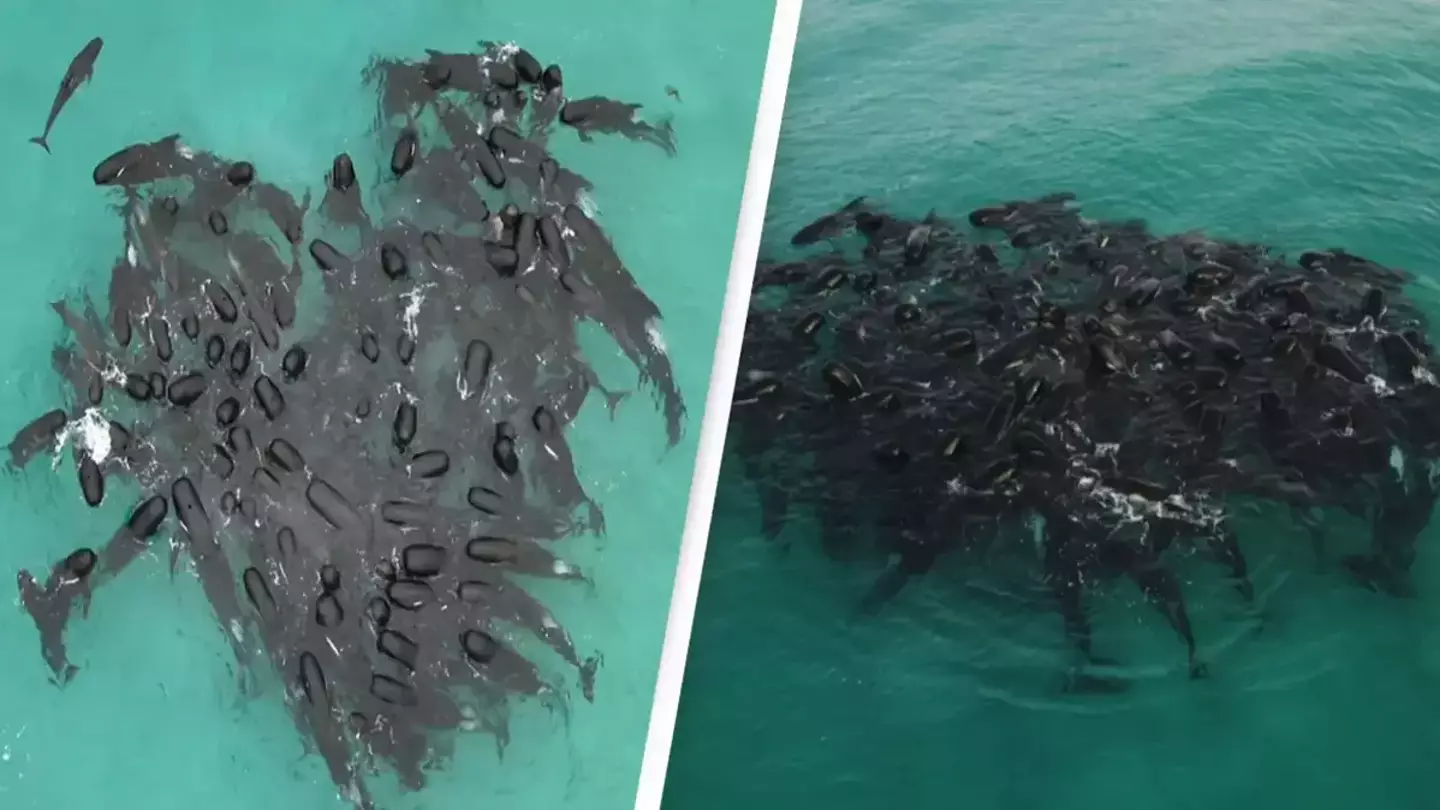Off the southern coast of Western Australia, a breathtaking moment unfolded in July of last year when nearly 100 whales were captured in aerial photos forming a heart shape off Cheynes Beach. The Parks and Wildlife Service shared these stunning images that show the whales, unbeknownst to the danger ahead, creating a heart in the ocean.
After spotting this unusual formation, the DBCA Parks and Wildlife Service Albany District was quick to respond to monitor the pod. They urged the public to maintain a distance and avoid getting too close to the whales. Despite the initial beauty of the scene, it soon turned tragic as the whales began to beach themselves.

With the situation escalating, DBCA officers and numerous volunteers sprang into action to manage the incident. A skilled team, including veterinarians from Perth Zoo and marine fauna experts, rushed to the site to assist.
Marine biologist Dr. Vanessa Pirotta, in an interview with Sky News, expressed her awe at the sight but also her confusion about the cause, stating, “I personally have never seen anything like this. Pilot whales are largely an offshore species. They are very social. They hang out together. But like this? This is super unusual.”
The response teams were equipped with specialized rescue gear, including vessels and slings. Tragically, despite these efforts, 51 whales perished.
The Parks and Wildlife Service continued their efforts to save the remaining 46 whales, coordinating with registered volunteers and other organizations to attempt moving them back to deeper waters. A Facebook post from the service thanked the community for their overwhelming support and offers of assistance, noting that they now had sufficient volunteers.
The public was asked to stay clear of the beach for safety reasons as the Incident Management Team prioritized the safety of staff, volunteers, and the welfare of the whales. They noted the presence of multiple hazards in the response zone, including large, distressed, and potentially sick whales, sharks, waves, heavy machinery, and vessels.

Dr. Pirotta suggested to ABC some reasons for the stranding could include the whales rallying around a sick member, navigational errors, or possibly evading orcas in the vicinity.

